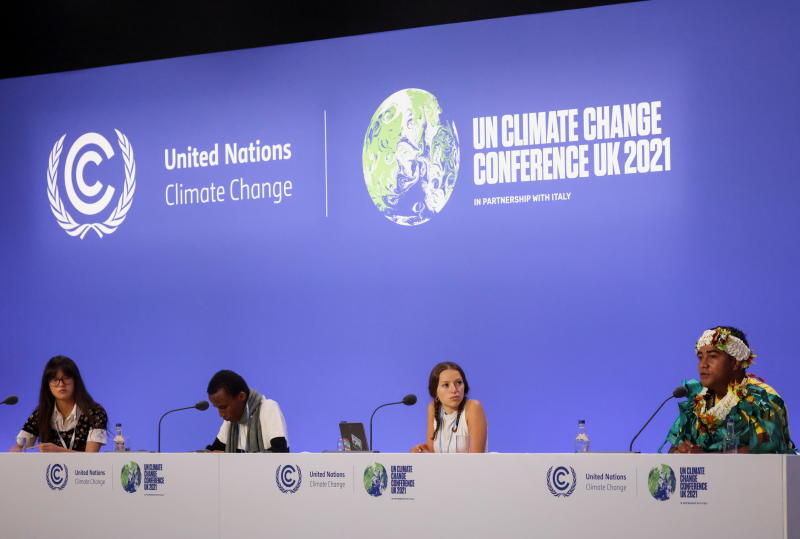×
The Standard e-Paper
Smart Minds Choose Us

Youth climate activists Magali Cho Lin Wing from Britain, Eric Njuguna from Kenya, Nicole Becker from Argentina, and Kato Ewekia Taomia from Tuvalu take part in a session during the UN Climate Change Conference (COP26), in Glasgow, Scotland, Britain, November 4, 2021. [Reuters, Yves Herman]
For the past few decades, mounting evidence has pointed to human activity as the cause of global climate change.